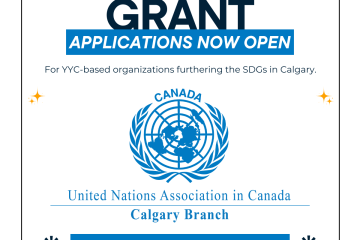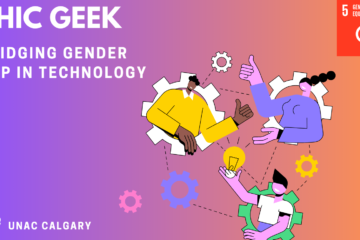Mission: WASH enable
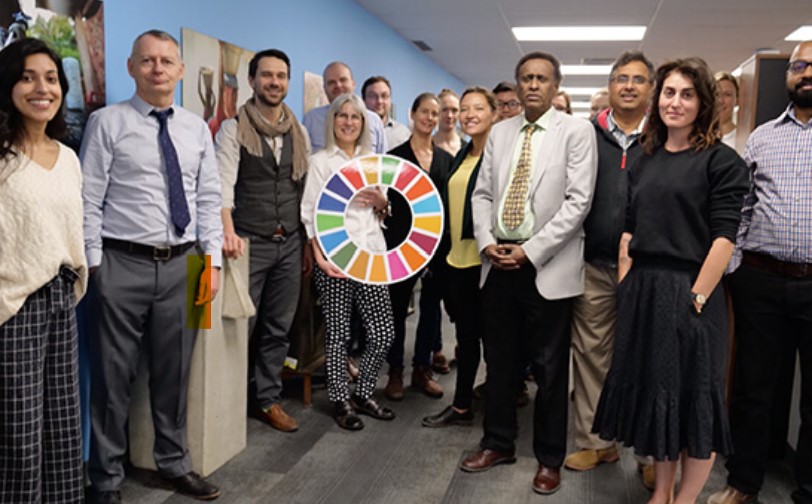
The team at CAWST provide technical training and consulting, and act as a centre of expertise in water and sanitation for the poor in developing countries.
By: Rida Rehmani
The COVID-19 pandemic closed many physical doors, but it enabled a world of possibilities for the training team at the Centre for Affordable Water and Sanitation Technology (CAWST).
A cycle of poverty and disease traps millions of people- mostly in rural and developing areas because they lack access to safe drinking water and basic sanitation, a crisis further exasperated by the COVID-19 pandemic.
CAWST is a world-renowned Canadian charity that has its roots in Calgary. They address the global need for safe drinking water and sanitation by building local knowledge and skills on household solutions people can implement themselves.
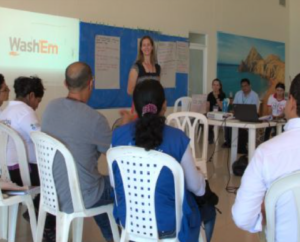
Lisa Mitchell training staff in-person pre-pandemic (Riohacha, La Guajira, Colombia)
When the pandemic swept the world, CAWST was forced to rethink and redesign its approach on how they delivered its face-to-face water, sanitation, and hygiene (WASH) training services to a global audience of organizations, including community workers, NGO organizations, government institutions, United Nations agencies, and CAWST’s 15 Water Expertise and Training (WET) Centre partners and training organizations. In 2020 alone, CAWST provided training and support across 88 countries to 4,900 individuals from over 960 organizations.
“While we had online training before the pandemic, we still needed to make a rapid shift to be exclusively online and reach our partners who were used to receiving our services in-person,” says Lisa Mitchell, Director, Learning, Global Services at CAWST. “We also wanted to ensure our online training would reach those in rural communities and areas where internet service was unreliable.” Fast forward two years and CAWST offers a full range of online and blended training options on topics such as drinking water quality testing, household water treatment and safe storage, sanitation, and implementing WASH programs.
Exponential opportunity
“While there were many challenges to online training, it also offered an exponential opportunity,” says Lisa. “Before the pandemic, we were often limited to those that could attend the in-person training delivered by us or by our partners. Going online allowed us to mobilize our reach even more around the world. For example, we recently ran a webinar, in multiple languages with attendees from 72 countries, 200 government, and non-government organizations.”
“We also noticed a huge transformation in our training partners because of the shift to online,” says Lisa. “Where previously they were quite hesitant to even consider online training, when the pandemic hit, they had to make this shift whether they wanted to or not. They are now seeing the possibilities it offers and are evolving how they’re reaching out to their local communities, even where there is poor connectivity.”
According to CAWST, “there is a significant gap in the human capacity required to support the attainment of universal access to safe water and sanitation.” The latest numbers from the WHO/UNICEF 2021 report, state that one in four – 2 billion people – around the world lack safe drinking water, while almost half of the global population – 3.6 billion people – lack safe sanitation. So, the more people that the organization can train, the more people around the world will benefit from their learning.
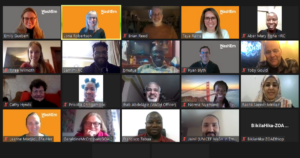
Blended training for Wash’Em delivered by CAWST in English, French and Spanish. Training and support focused on hand hygiene promotion and behaviour change approach designed specifically for emergencies.
All of CAWST’s resources are available online, free and open content for anyone in the world to use. Its WASH Resources website provides short online training modules, videos, step-by-step guides, technical articles, and training manuals on a variety of topics for self-directed learning. Participants can also sign up for full online courses and webinars, where they can ask questions and dig a little deeper into the issues. And as the world opens up again, face-to-face workshops are becoming available again where CAWST or its partners can do in-person demonstrations with hands-on training.
“With the foundational learning resources now available online, we can train more people, while spending more time supporting those who are taking action to have an even stronger impact,” says Lisa.
Take action
For World Water Day 2022, learn more about what CAWST is doing by subscribing to Global Notebook, providing real-time updates from CAWST’s global advisors in communities around the globe.
—–
Resources and references:
